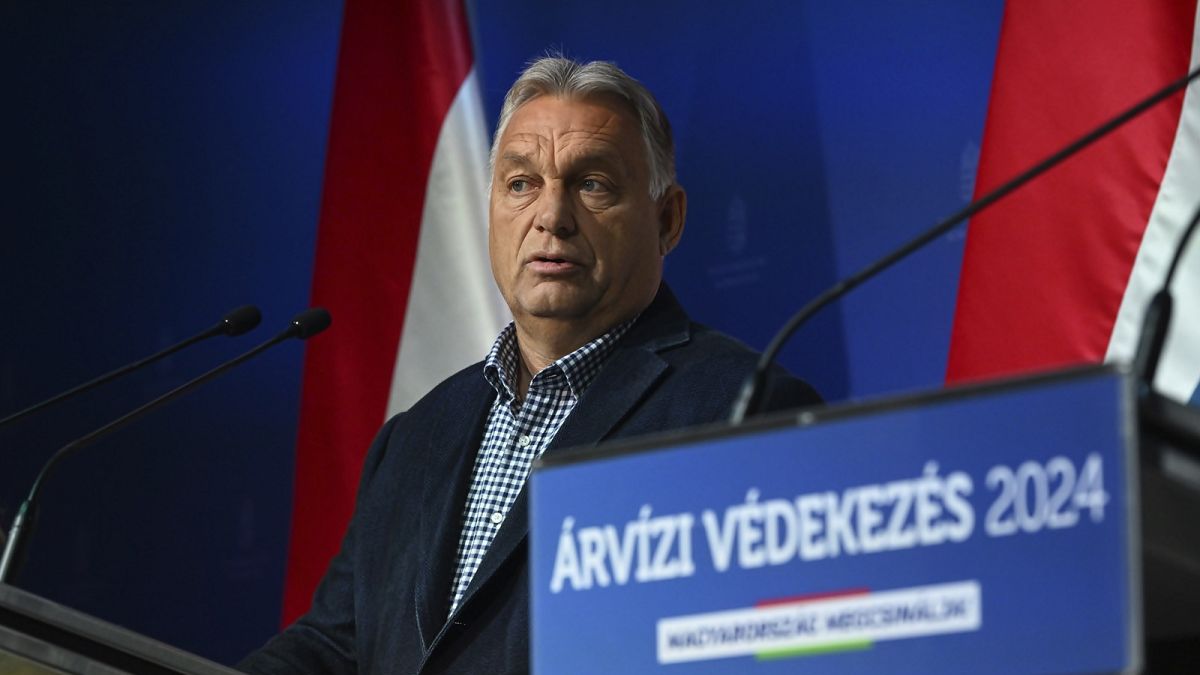Brussels has stepped up its legal action against Hungary’s “national sovereignty law,” arguing it violates a wide range of fundamental rights.
The European Commission has taken Hungary to court over a highly controversial law Budapest says is necessary to protect “national sovereignty,” but that NGOs have denounced as a dangerous tool to target and eventually silence opposition voices.
The lawsuit, announced on Thursday afternoon, represents the next step in the legal action the Commission launched in February and comes in reaction to the “unsatisfactory” answers provided by Budapest.
The decision effectively transfers the matter from Brussels to Luxembourg, where the EU’s top court is based. Notably, the executive does not ask the judges to impose any interim measures, such as the temporary suspension of the law that some civil organisations had requested. A ruling is expected in the coming years.
“After carefully assessing the reply of the Hungarian authorities, the Commission maintains most of the grievances identified, which have still not been addressed,” the Commission said on Thursday.
The contentious act, approved in December thanks to the backing of Viktor Orbán’s ruling party, establishes the so-called Sovereignty Protection Office (SPO) to investigate people and organisations suspected of undermining the country’s “national sovereignty” and “constitutional identity.”
The SPO can collect information on individuals or groups that receive funding from abroad and are perceived to influence the democratic debate and electoral processes “in the interest of another state” or “foreign organ.” Hungary’s secret services are compelled to assist the office, which is entitled to access classified documents.
Once its investigation is concluded, the SPO publishes its conclusions. The law does not foresee any remedial measures to contest the findings.
Orbán, who frequently lashes out against his detractors as Western-paid agents, says the act is necessary to shield Hungary from undue political interference.
But the act’s broad mandate, vague definitions and lack of judicial oversight have sparked serious concerns among civil society and independent journalists, who fear they will be unfairly name-shamed for refusing to follow Orbán’s political dogma and left powerless to challenge the SPO’s public conclusions.
Transparency International Hungary and Átlátszó, an investigative non-profit supported by international donations, have already been targeted by the office.
The Commission echoed these considerations when it launched the legal action in February, saying the law violates a wide range of fundamental values and legal guarantees, such as the principle of democracy, the right to private life, the protection of personal data, freedom of expression, information and association, and the presumption of innocence, among others.
The United States has also censured the “draconian” law, saying “the Hungarian government’s attempt to harass, intimidate, and punish independent organizations runs counter to the principles of democratic governance rooted in the rule of law.”
Further criticism has been voiced by the European Parliament, the Venice Commission, Amnesty International and the Hungarian Helsinki Committee, as well as dozens of civil society organisations and independent media outlets.
The latest development comes amid an extremely fraught chapter in the decade-long showdown between Brussels and Budapest. In recent weeks, Hungary has been under fire for refusing to pay a €200 million fine, threatening to bus migrants to Belgium and easing work permits for Russian and Belarusian citizens.
Orbán is scheduled to address the European Parliament next week as part of Hungary’s six-month presidency of the EU Council, which is under a boycott in response to the prime minister’s meeting with Vladimir Putin in July.
This article has been updated.
Read the full article here
